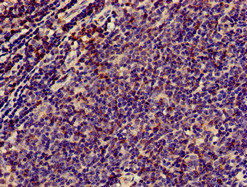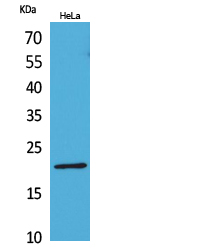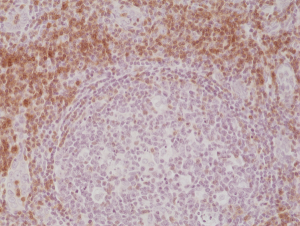CD3 epsilon antibody [APA1/1]
GTX80236
ApplicationsFlow Cytometry, ImmunoFluorescence, ImmunoPrecipitation, Western Blot, ImmunoCytoChemistry, ImmunoHistoChemistry, ImmunoHistoChemistry Frozen
Product group Antibodies
ReactivityHuman, Mouse
TargetCD3E
Overview
- SupplierGeneTex
- Product NameCD3 epsilon antibody [APA1/1]
- Delivery Days Customer9
- ApplicationsFlow Cytometry, ImmunoFluorescence, ImmunoPrecipitation, Western Blot, ImmunoCytoChemistry, ImmunoHistoChemistry, ImmunoHistoChemistry Frozen
- CertificationResearch Use Only
- ClonalityMonoclonal
- Clone IDAPA1/1
- Concentration1 mg/ml
- ConjugateUnconjugated
- Gene ID916
- Target nameCD3E
- Target descriptionCD3 epsilon subunit of T-cell receptor complex
- Target synonymsCD3epsilon, IMD18, T3E, TCRE, T-cell surface glycoprotein CD3 epsilon chain, CD3-epsilon, CD3e antigen, epsilon polypeptide (TiT3 complex), CD3e molecule, epsilon (CD3-TCR complex), T-cell antigen receptor complex, epsilon subunit of T3, T-cell surface antigen T3/Leu-4 epsilon chain
- HostMouse
- IsotypeIgG1
- Protein IDP07766
- Protein NameT-cell surface glycoprotein CD3 epsilon chain
- Scientific DescriptionThe protein encoded by this gene is the CD3-epsilon polypeptide, which together with CD3-gamma, -delta and -zeta, and the T-cell receptor alpha/beta and gamma/delta heterodimers, forms the T-cell receptor-CD3 complex. This complex plays an important role in coupling antigen recognition to several intracellular signal-transduction pathways. The genes encoding the epsilon, gamma and delta polypeptides are located in the same cluster on chromosome 11. The epsilon polypeptide plays an essential role in T-cell development. Defects in this gene cause immunodeficiency. This gene has also been linked to a susceptibility to type I diabetes in women. [provided by RefSeq, Jul 2008]
- ReactivityHuman, Mouse
- Storage Instruction2°C to 8°C
- UNSPSC12352203








